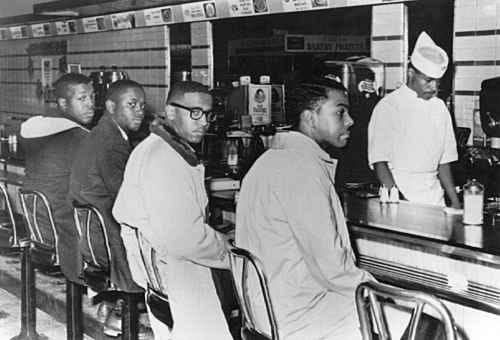“A Rich Tradition” WWP’s Lamont Lilly on Durham and the Movement
Worker’s World Party (WWP) Vice-Presidential candidate Lamont Lilly places his activism squarely in the history of his area of North Carolina.
“Durham has a rich tradition of radical, militant, intelligent, and dedicated and committed black folk,” Lilly said in an interview in early August.
Lilly recounted some of Durham’s storied history. He talked about the community’s strong connections to the American African diaspora, particularly in the last century. That tradition has its latest chapter in Lilly, whose involvement with WWP began in 2011 as an outgrowth of his activism within the community.
Durham’s History with Black Movements
Durham’s turn of the century “Hayti” community of prominent black professionals gave birth to the city’s “Black Wall Street.”
“Durham’s black community helped shape some of the cultural terrain and political terrain” of black America, Lilly said. “Booker T. Washington and W.E.B. DuBois spoke highly of the city.”
The political terrain in Durham would become rocky with resistance in the 1950s. The Royal Ice Cream Sit-In in 1957 would lead to the 1960 Greensboro sit-ins. The “A & T Four” became nationally known in the latter actions and helped to drive the public investment in the Civil Rights Movement.
In the 60s and 70s, black movements grew nationally and in the Durham area. SNCC was born in Raleigh in 1960. The Black Panthers and other black nationalist groups grew in popularity in the region in the tumultuous decades in the aftermath of the movement’s early 60s success.
“It was a bridge to the black power movement,” Lilly explained. “Now, you mix all that in with the vibrant hip hop, jazz, and blues scene and you have the city of Durham.”
Lilly and the WWP
“I was in grad school at North Carolina Central University in the years leading up to 2011,” Lilly said. “It was my first inclination coming to black radical consciousness and thought.”
As his education progressed Lilly began to see the intersectional connection between capitalism, white supremacy and racism, sexism and patriarchy, and other societal ills. Lilly noticed that the same organization kept popping up, distributing literature, working with the community, and maintaining a presence in the community. That organization was the WWP.
In 2011, Lilly traveled north to Zucotti Park in downtown Manhattan to show his support for be a part of the Occupy Wall Street movement. He ended up connecting with the WWP in New York.
“They were very militant, very direct,” he said. “I connected with them and I’m proud to say I’ve been a part of the organization ever since.”
His involvement reached a new high this year when presidential candidate Monica Moorehead chose him as her running mate. The ticket promises an anti-imperialist, anti-capitalist, pro-people approach to politics.
“I believe in the power of the people- globally,” said Lilly.




